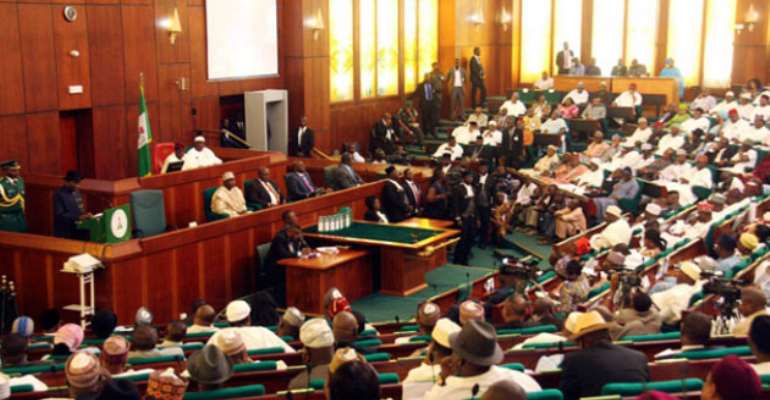NIGERIAN SENATE DIFFERS WITH EXECUTIVE ARM ON USED CAR BAN POLICY, CLOSURE OF ABUJA AIRPORT

Nigeria’s Senate has taken another bold step to checkmate policies from the executive arm which had been criticised by some citizens as unpalatable in the harrowing effects of the economic recession under President Mahammadu Buhari led government.
The Upper Chambers wants the Nigerian Customs Service (NCS) to stop implementing the policy on ban of importation of used cars, alias, Tokunbo or Belgium, through Nigeria’s borders with neighbouring Benin Republic, Niger and Chad.
The Federal Government of Nigeria had late last year announced the policy, which was to be implemented January 1, this year, but was greeted by condemnation from many citizens and used car dealers. The critics argued that the policy would cause more hunger, adding that the few vehicle assembling firms in the country were not yet capable of meeting the huge local demand for cars, even as many Nigerians cannot afford brand new vehicles made locally or abroad. They rather want Nigeria to understudy Benin Republic which effectively manages its ports and parks in Cotonou and turns its economy around with the booming Tokunbo car business.
Nigeria’s government had picked on the policy as one of its innovations to diversify the dying economy by discouraging importation to encourage local production, but those against the outright ban of used cars counted the negative consequences. It also premised its stance on the need to manage security at the borders, and assured that importation of used vehicles could still be done via the nation’s sea ports.
Following the controversy, the Senate, which just resumed plenary after Christmas and New Year break, waded into the matter, following a motion by Senator Barau I. Jubrin (Kano North), co-sponsored by four other senators from the North. The motion was overwhelmingly supported by all senators present after exhaustive contributions.
The mover of the motion had suggested that the Federal Government should rather create formal entry points in each of the zones in Nigeria that are bounded by the countries where the used vehicles come in from, to enhance effective monitoring as well as derive revenues from those bringing in used cars from the neighbouring countries. But this recommendation was rejected on the ground that not all the six regions have landed boundaries with neighbouring countries where used vehicles imported into Nigeria,
The Senate chided the NCS over excuse that the ban was due to evasion of import duties by dealer and non-dealer importers who smuggle used vehicles through land borders into Nigeria.
It said the NCS which boasted about its capability in raking in huge revenues from vehicles imported through the nation’s sea ports which are not even well managed, should as well show its capability in deriving revenues from Tokunbo cars imported via land borders.
Senator upon senator agreed with the mover and co-sponsors of the motion’s stances the used car ban policy, would have deprived many Nigerians from their means of livelihood, in time like now that poverty and mass unemployment are wreaking havoc on citizens of Nigeria.
“… it is reported that the ban would lead to the loss of about 500,000 jobs by the people engaged in the business of vehicle importation and handling services in the border areas of the country.
“… the economy of the border villages and towns that depends on the activities of the vehicles importation shall be adversely affected to the detriment of all”, the move of the motion, Senator Barau, buttressed to his colleagues who spoke similarly in support of the motion.
In his contribution, the Senator representing Bayelsa East Senatorial District, Senator Ben Murray Bruce, made a passionate point that Nigeria’s government have often times seen private business operators as opponents, instead partnering with them to formulate policies that would promote economic development.
Senator Bruce, called on the Federal and State Governments to change strategies, and form viable alliances with the private sector in order to encourage local entrepreneurship in the country, as way of diversifying the nation’s economy.
In a related development, the Senate condemned the planned six-week closure of the Nnamdi Azikiwe International Airport in Abuja by the Ministry of Aviation, for the sake of major repairs.
The Senate’s condemnation is sequel to complaints by airline operators and passengers who expressed concern about insecurity and inconveniences that could arise from the use of the Kaduna Airport, which many said was not of international standard, neither are roads to the airport safe for passengers giving the spate of killings in the area.
It was also inspired by the social, economic and political loses that the country and others who have dealings with it would suffer if the Azikiwe Airport, Abuja is closed down, even for that short period.
Consequently, it has charged the executive arm to come up with better and more convenient alternative to the total closure for the earlier planned six weeks.
